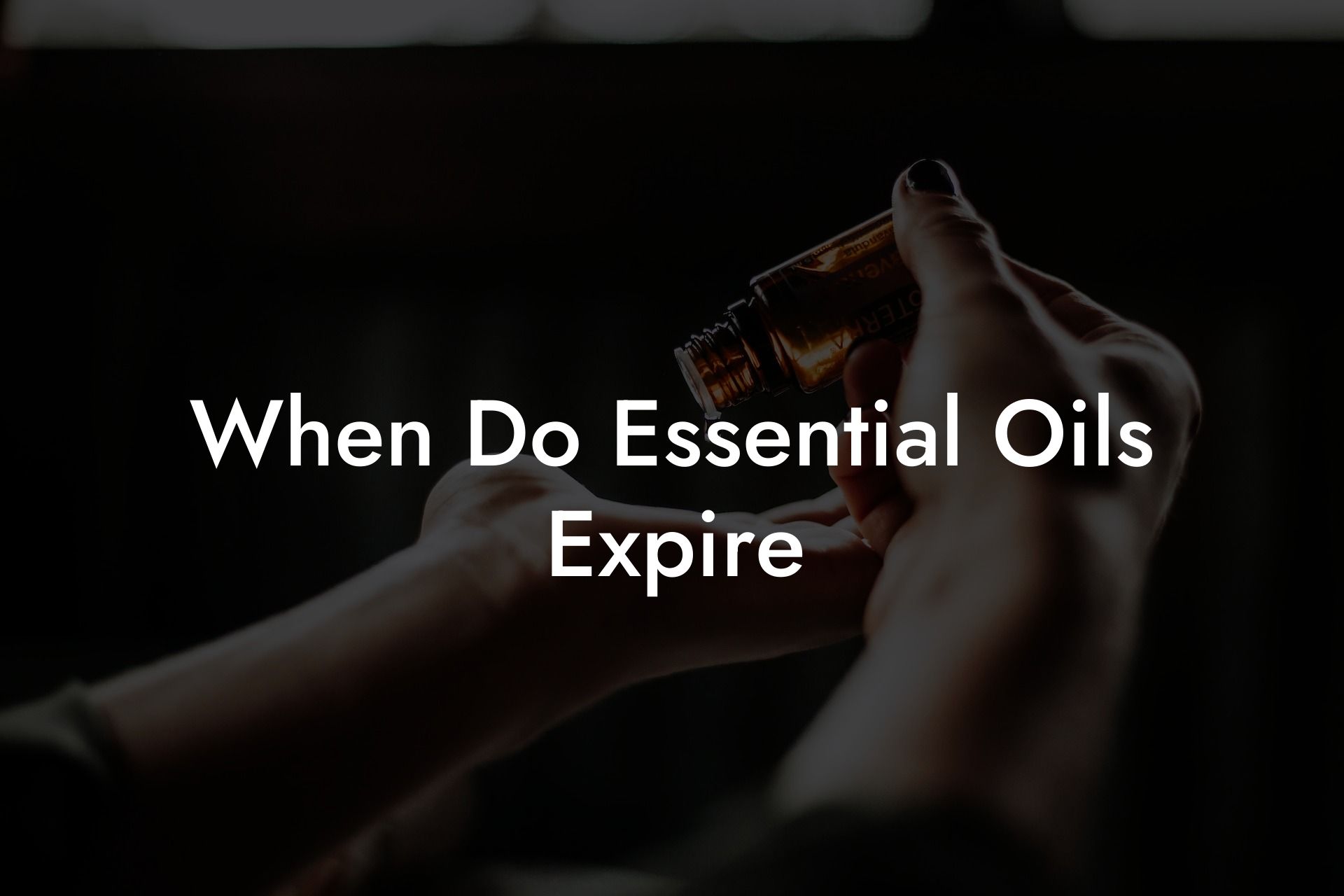The magic of essential oils lies in their breathtaking aromas and their power to enhance our daily lives. However, the question arises – do essential oils expire? With this in mind, we’ve crafted this in-depth guide for you to understand their shelf life, how to properly store them and when it’s time to say goodbye to your beloved oils.
Table of Contents
Understanding the Shelf Life of Essential Oils
Essential oils are intricate mixes of volatile organic compounds derived from plants. Over time, these compounds may deteriorate, losing their efficiency and altering their fragrance. While essential oils don’t exactly ‘expire,’ they do gradually degrade and lose potency. The shelf life of an essential oil depends on its chemical makeup, how it’s stored, and its exposure to air and sunlight.
Factors Affecting Essential Oil Shelf Life
- Chemical Composition: Some oils contain constituents that are more stable and resistant to oxidation, prolonging their shelf life. For example, oils with high levels of monoterpene hydrocarbons, like lemon or pine, tend to degrade more quickly than those with higher amounts of sesquiterpene hydrocarbons, like patchouli or sandalwood.
- Storage: Proper storage is crucial when preserving the shelf life of essential oils. Exposure to light, heat, and oxygen can speed up oxidation and lead to diminished potency. Store in a cool, dark place, preferably in amber or cobalt blue bottles to shield them from UV rays.
- Quality: Low-quality oils or oils adulterated with synthetic compounds may have a shorter shelf life than pure, unadulterated oils. Be cautious when purchasing essential oils and make sure to buy from reputable sources like Oshu Oils.
Recognizing Deteriorated Essential Oils
Knowing when an essential oil has passed its prime can help ensure you’re making the most of their potential benefits. Look for these signs to determine if it’s time to replace your oil:
- Change in Aroma: If an oil smells rancid or distinctly different from when you first purchased it, its quality has likely declined.
- Change in Color or Consistency: If the color or consistency of the oil has significantly changed, it’s a sign of deterioration. Thickening or cloudiness may occur as the oil oxidizes.
- Irritation or Allergic Reactions: If you’ve used an essential oil before without issue and suddenly experience irritation or an allergic reaction, it might be due to the degraded quality of the oil.
Extending the Life of Your Essential Oils
By following proper storage guidelines and paying attention to their condition, you can prolong the life of your essential oils. Here are some tips:
- Keep essential oils in a cool, dark place, away from direct sunlight or heat sources.
- Use amber or cobalt blue glass bottles to protect oils from UV rays.
- Minimize air exposure by tightening bottle caps and using an oil dropper when needed.
- Store essential oils in smaller bottles to reduce air exposure as the oil level drops with usage.
- Label and date your oils so you can track their age and usage.
When Do Essential Oils Expire Example:
Let’s say you have a bottle of lemon essential oil that’s two years old. You’ve noticed the aroma has lost its vibrancy and it has a slightly rancid smell. The consistency of the oil has thickened, and the color is slightly different as well. These signs indicate that your lemon essential oil has passed its prime, and it’s time to replace it with a fresh bottle.
Now that you’re equipped with the knowledge of essential oil shelf life, you can enjoy their array of therapeutic benefits without concern. Remember to share this guide with your fellow essential oil enthusiasts and explore our other comprehensive guides on Oshu Oils for further learnings. Our Oshu Oils range of essential oils boasts high-quality, artisan-crafted oils that enhance your daily life. Give your senses the special care they deserve and let the world of aromatherapy enchant you.





















